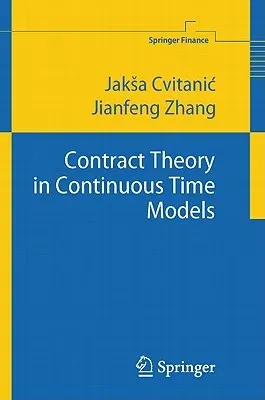Jaksa Cvitanic
(Author)Contract Theory in Continuous-Time Models (2013)Hardcover - 2013, 26 September 2012

Qty
1
Turbo
Ships in 2 - 3 days
In Stock
Free Delivery
Cash on Delivery
15 Days
Free Returns
Secure Checkout

Part of Series
Springer Finance
Print Length
256 pages
Language
English
Publisher
Springer
Date Published
26 Sep 2012
ISBN-10
3642141994
ISBN-13
9783642141997
Description
Product Details
Authors:
Book Edition:
2013
Book Format:
Hardcover
Country of Origin:
NL
Date Published:
26 September 2012
Dimensions:
23.37 x
15.49 x
2.03 cm
Genre:
Science/Technology Aspects
ISBN-10:
3642141994
ISBN-13:
9783642141997
Language:
English
Location:
Berlin, Heidelberg
Pages:
256
Publisher:
Series:
Weight:
498.95 gm